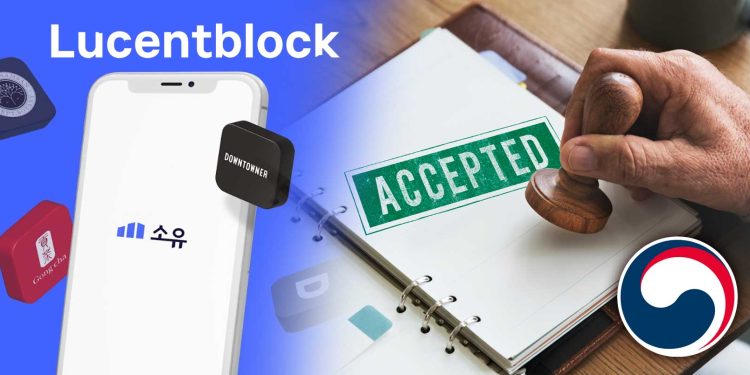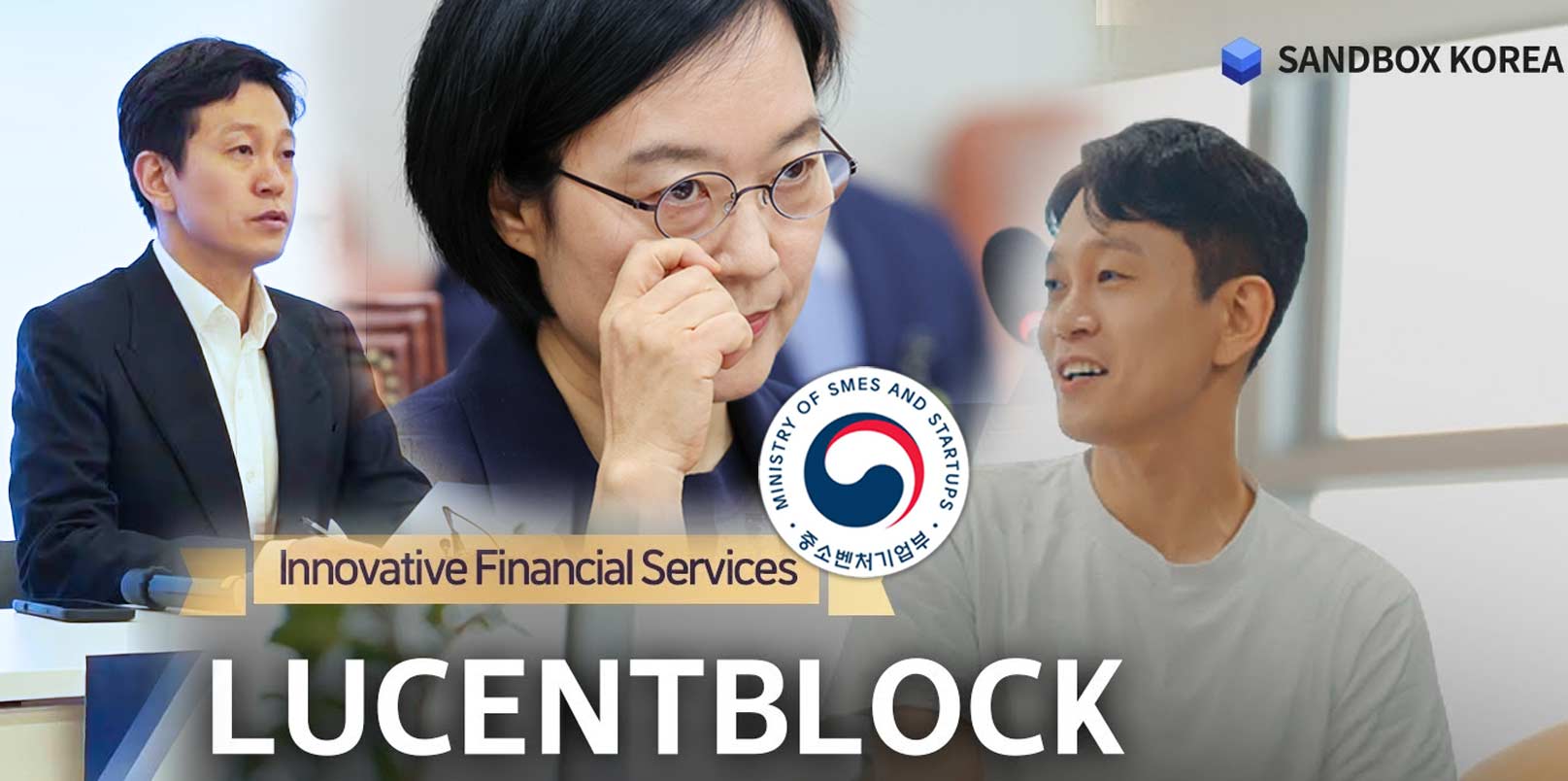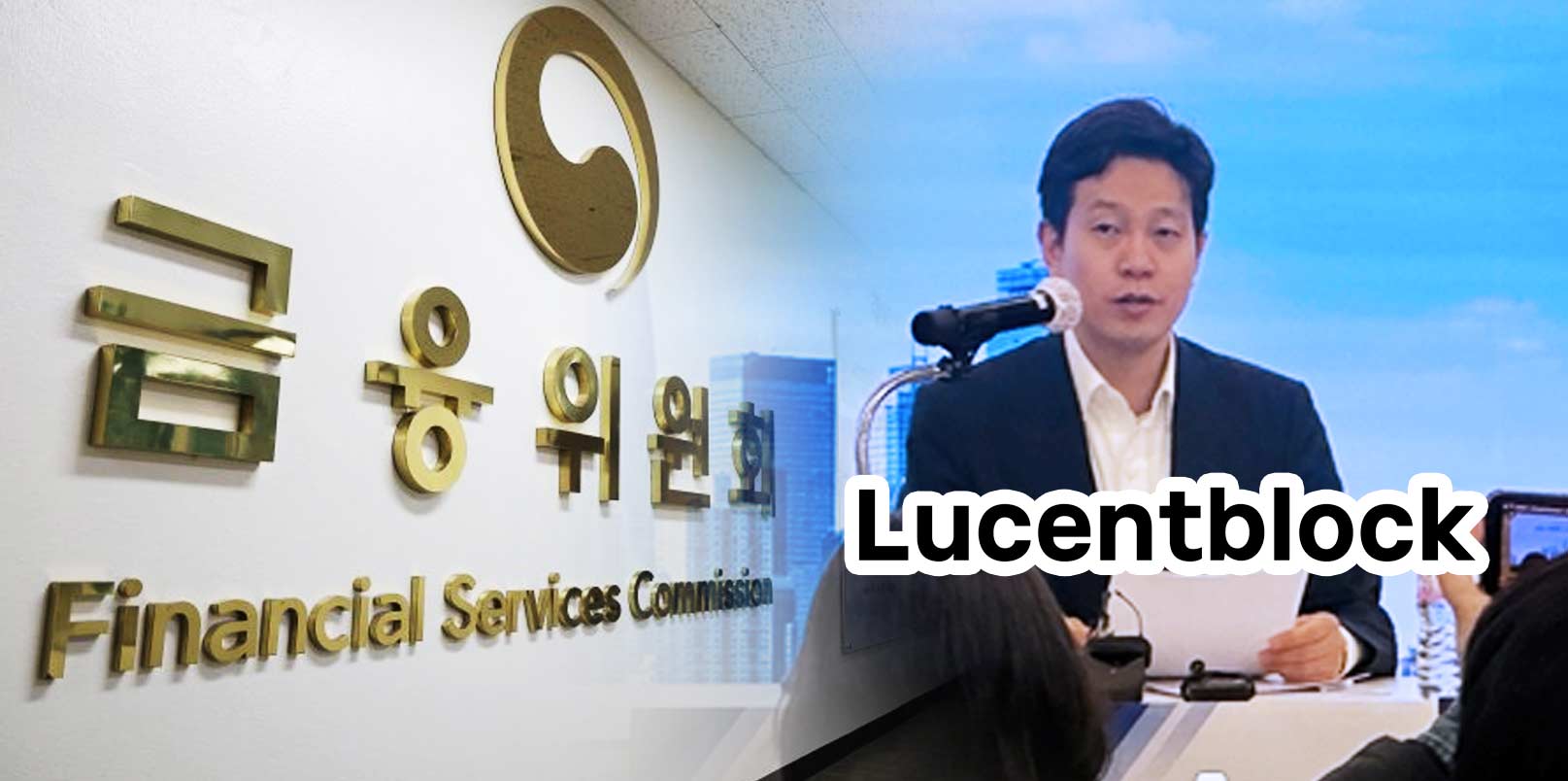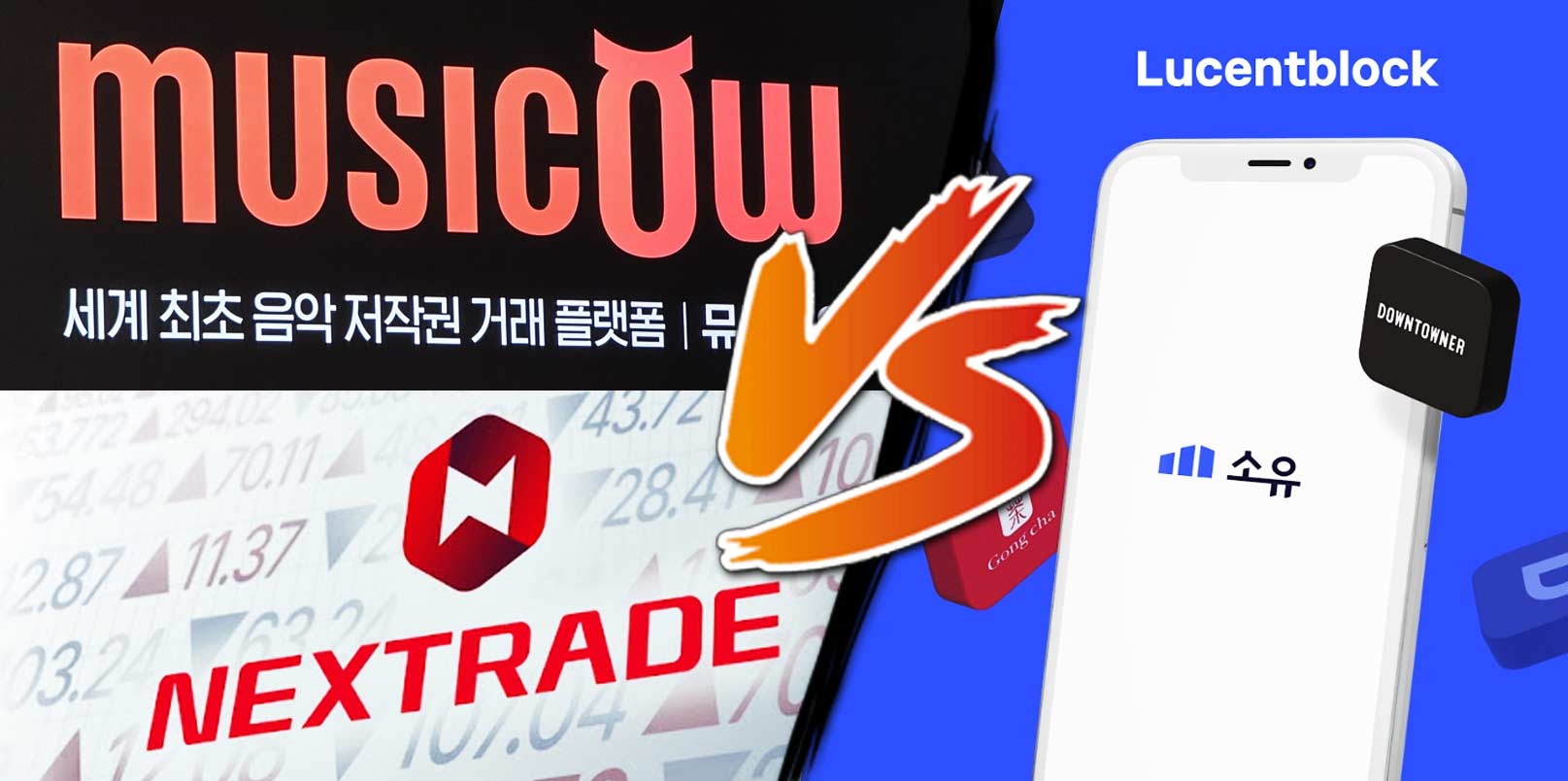A pivotal transition is currently happening to the fintech startup scene in South Korea. The recent policy revision by the Ministry of SMEs and Startups (MSS) has finally unlocked venture investment access for companies once bound by financial classification rules. Lucentblock, a leading real estate tokenization platform, has now become the first real-world case testing how regulation and innovation can finally move in sync.
Fintech Policy Change Clears Lucentblock’s Investment Barrier
Korean fractional investment platform Lucentblock has overcome its biggest obstacle to attracting venture capital following the MSS revision to the Venture Investment Promotion Act enforcement notice.
Previously, financial companies were restricted from receiving venture capital funding, limiting the scalability of fintech startups operating under financial supervision. Lucentblock faced this issue while seeking approval from the Financial Services Commission (FSC) to operate a fractional investment trading platform, which would have classified it as a financial institution. The new revision removes that restriction, allowing regulated fintech platforms to remain eligible for VC investment.
Founded in 2018, Lucentblock operates SOU, a real estate Security Token Offering (STO) platform designed to make fractional real estate ownership accessible and secure. Its major investors include Capstone Partners, Korea Investment & Securities, Quad Asset Management, and Hana Financial Investment.
Revising the Venture Investment Framework for Regulated Innovation
Until now, Korea’s venture investment ecosystem has been constrained by a narrow definition of eligible startup categories.
Under previous MSS rules, venture investment companies were largely prohibited from investing in financial institutions except for specific fintech segments.
The revised notice—covering regulations on venture capital registration, private investment partnerships, and venture investment associations—now adds unlisted stock trading and fractional investment platforms to the list of allowable ICT-based exceptions.
This means startups like Lucentblock, even after obtaining FSC approval, can continue to raise venture funding.
The decision resolves a long-standing contradiction in Korea’s innovation policy where startups pioneering financial infrastructure were treated as conventional financial entities rather than venture-scale technology firms.
Lucentblock is Turning Policy Revision into Growth Opportunity
Lucentblock stated that the revision was partly initiated through its consultation with the MSS during the company’s application process for platform approval.
An official from Lucentblock stated,
“We are the practical beneficiary of this amendment. Of the three firms applying for FSC authorization to run fractional investment exchanges, Lucentblock is the only one that qualifies as a venture company under the new rules.”
CEO Heo Se-young emphasized that venture participation is essential to legitimize and accelerate Korea’s emerging fractional investment market.
“For this market to evolve into mainstream finance, professional venture investors must take part. This reform strengthens the venture-centered ecosystem we’ve been striving for.”
The CEO added that after obtaining FSC approval, Lucentblock plans to raise new rounds of venture capital to advance platform technology and expand its user base.
The policy revision also comes at a pivotal moment for Lucentblock, which has faced a legal dispute with Nextrade. The clarification of venture investment eligibility is expected to reinforce investor confidence and strengthen Lucentblock’s standing as a frontrunner in Korea’s emerging STO market.
Redefining Venture Policy for Regulated Startups
The Lucentblock case highlights Korea’s broader challenge of aligning financial regulation with venture innovation.
Many startups in fintech, asset tokenization, and alternative investment have faced similar structural constraints. By redefining investment eligibility, the government is signaling stronger support for deep-regulated innovation — a sector critical to bridging finance, technology, and real assets.
And so, the revision now offers a clearer policy foundation so investors can confidently support startups at the intersection of finance and technology, potentially stimulating new venture capital inflows into the STO and digital asset infrastructure space.
The Lucentblock Case: A Test of Korea’s Regulatory Evolution
Lucentblock’s case serves as the first practical test of Korea’s reformed venture investment policy. If successful, it could establish a repeatable model for startups that operate under strict financial oversight yet remain technology-driven.
As Korea’s innovation finance matures, its ability to protect regulation without stifling entrepreneurship will determine how effectively the country can scale the next wave of fintech and digital asset platforms in global markets.
– Stay Ahead in Korea’s Startup Scene –
Get real-time insights, funding updates, and policy shifts shaping Korea’s innovation ecosystem.
➡️ Follow KoreaTechDesk on LinkedIn, X (Twitter), Threads, Bluesky, Telegram, Facebook, and WhatsApp Channel.






